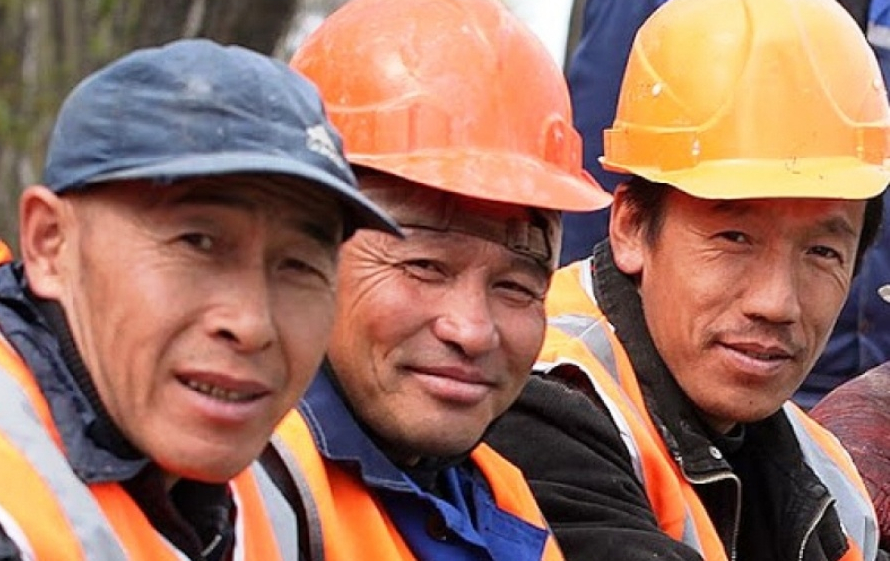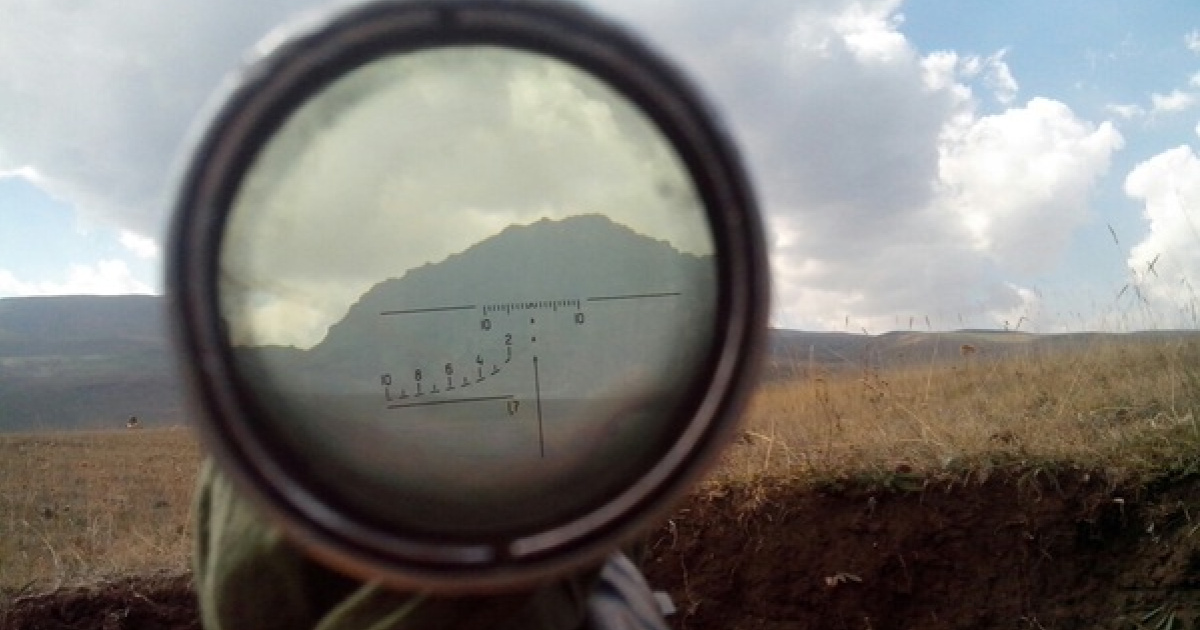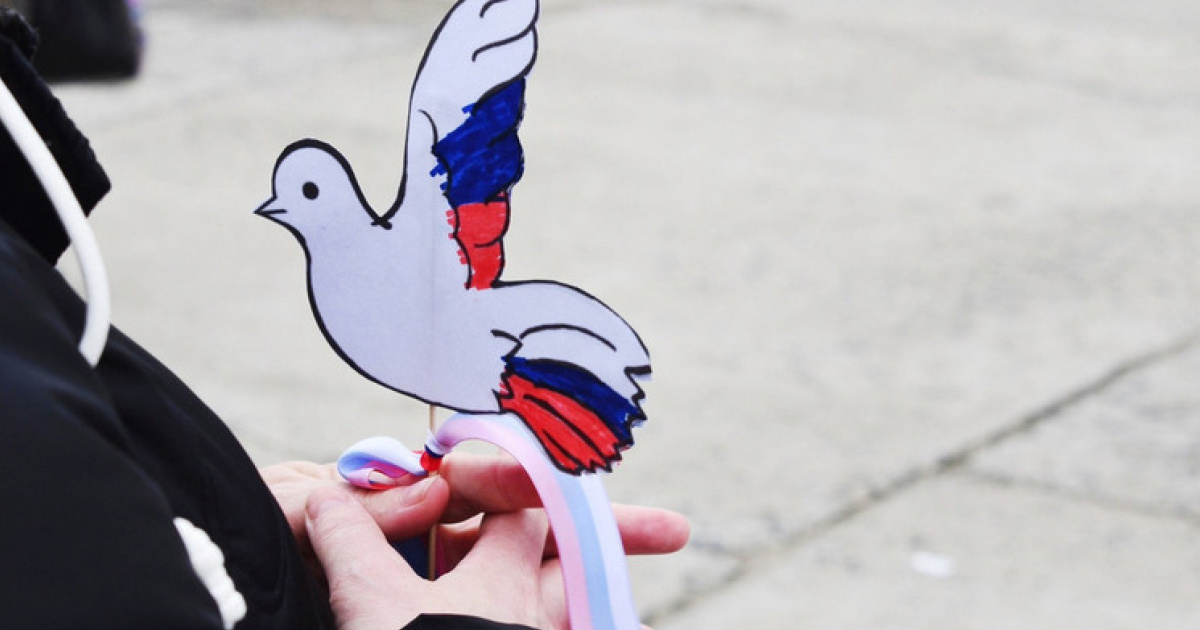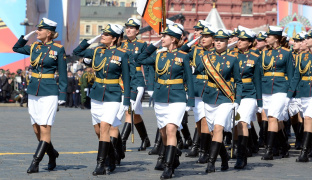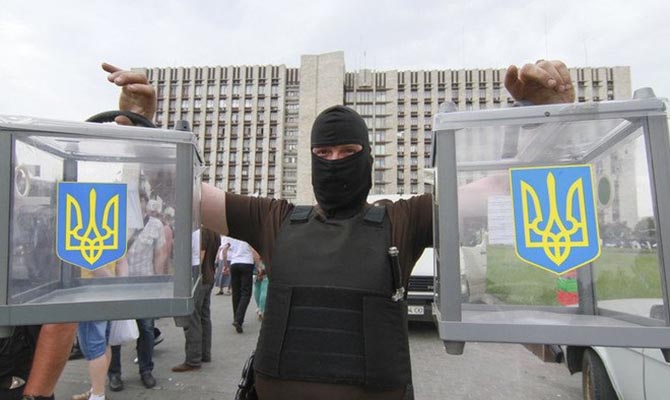
"There won't be parliamentary elections in October: Verkhovna Rada extends martial law", – such headlines appeared in the media and social networks at the end of July.
OstroV’s sources within the President's team confirm that holding elections this autumn is "highly unlikely", but one shouldn’t be also drawing a direct connection between the extension of martial law and the parliamentary elections.
"If there's a desire to hold elections, they can be conducted even during martial law. Small changes in legislation would suffice, and there would be no issues with the Constitution. The question is in the readiness and willingness of the authorities, nothing more. In any case, I can say for sure that we are getting closer to the elections, regardless of the continuation of martial law", - noted a source.
According to the Constitution and the current "schedule", the next elections to the Verkhovna Rada are supposed to take place on October 29, 2023, while the presidential elections are scheduled for the spring of 2024. However, the current legislation (for now) prohibits holding elections during martial law.
The first serious discussions about holding elections during wartime emerged in May of this year when the President of the Parliamentary Assembly of the Council of Europe, Tiny Kox, emphasized the need for Ukraine to hold parliamentary and presidential elections even under the conditions of martial law.
"You have to solve this challenge... It's not our question to dictate how to do it, but, of course, Ukraine must organize free and fair elections. Because it's your obligation under the Council of Europe Statute. And, of course, you will do it", - said Tiny Kox in an interview with Yevropeiska Pravda.
This statement received a rather sharp response from the Secretary of the National Security and Defense Council, Oleksiy Danilov, who directly stated that there can be no elections during martial law.
It might seem that President Volodymyr Zelensky settled the matter when he stated at the end of June that elections should only be held during peacetime.
"This is a global question. If we win, there will be elections. It means there will be no wartime, no war. And according to legislation, elections should take place during peacetime, when there is no war. I really want there to be peace next year, and life to be as it was before the war", - he declared.
However, on July 28, an unexpected statement came from the Speaker of the Verkhovna Rada, Ruslan Stefanchuk, asserting that the Ukrainian Constitution does not prohibit holding elections during martial law. Furthermore, according to him, the actualization of such a question will occur in the near future.
A source within the mono-majority told OstroV that the Speaker's statement caught many of his colleagues off guard.
"It's not about the preparation for elections, but about the fact that the statement was so unequivocal. Some interpreted it as a kind of 'stick', a warning for negligent MPs, while others saw it as a signal that elections could really take place in the near future. Most likely, they are all right. There are indications that elections will be held at least next year", - they noted.
Ukrainian political analyst Volodymyr Fesenko believes that the topic of elections has recently gained relevance due to the prolonged war.
"Why is this topic being discussed? Because the full-scale war is dragging on. It has already lasted for almost a year and a half, and it might last for the same amount of time again. There's now a risk that the parliamentary elections won't take place within the timeframe specified in the Constitution. There's a risk that even the next presidential elections, which should be held by the end of March next year according to the Constitution, might not happen. There are both proponents and opponents of holding elections during wartime. And perhaps there's a closed-door discussion taking place in the parliament, the President's Office, and other high-level offices", - he said in a comment to OstroV.
Stefanchuk’s statements
At the end of July, the Speaker of the Verkhovna Rada, Ruslan Stefanchuk, stated that the Constitution of Ukraine does not prohibit holding elections during the period of martial law.
"There is no such prohibition in the Constitution. This prohibition is contained in the Ukrainian law 'On the Legal Regime of Martial Law'. Therefore, there is no constitutional prohibition to conduct elections during the period of martial law", - he said in an interview with the Rada TV channel.
He also emphasized the need to maintain a balance and spoke out against "democratic stagnation".
"On one hand, yes, the parliament should continue its work, should pass necessary legislative acts. We are entering the budget process, and these are very important matters. On the other hand, we must understand that there should be no stagnation of the democracy that exists in society. And that's why the President of the Parliamentary Assembly of the Council of Europe, Tiny Kox, and other colleagues say that we still need to make efforts to achieve this", - Stefanchuk noted.
According to him, this issue may become a subject of discussions.
"And I think that we need to make some important decisions in this regard, in order to, on the one hand, ensure stability in the state, so that the state is not torn apart by elections during wartime, but on the other hand, to ensure this flow of democracy that Ukraine is essentially fighting for", - he said.
He concluded by adding that this issue will be further addressed in the near future.
It is worth noting that Ruslan Stefanchuk has been quite actively commenting on the topic of possible elections during wartime, and this is not the first such statement.
However, a few months ago, he mentioned that elections are only possible after the end of martial law, while also hinting at an alternative scenario.
"The matter of elections is regulated by the Constitution, the Electoral Code and a series of other legislative acts. The Law 'On the Legal Regime of Martial Law' stipulates that elections are not held during the period of martial law. This is entirely reasonable, as it's impossible to ensure the participation of all citizens in the elections and to guarantee the exercise of both active and passive voting rights. I believe that elections will take place immediately after the cessation of martial law. Otherwise, the law would need to be amended, but again, I have significant doubts that there will be an opportunity to conduct high-quality and legitimate elections in Ukraine at present, whose results society will trust", - he stated in an interview with Ukrinform at the end of April.
Several months later, he even went so far as to suggest that elections during wartime could tear the country apart.
"If elections during wartime were possible, it could potentially lead to the fragmentation of the state, something our enemy is hoping for. Hence, I believe that the most prudent and wise decision is to hold elections immediately after the conclusion of martial law", - he told in June 2023.
Political analyst Volodymyr Fesenko perceives Stefanchuk's statement as not indicative of any concrete plans by the authorities.
"A discourse on elections is ongoing. It's happening on social media, among politicians and experts. This issue has been under discussion for several months now. Stefanchuk simply aired his point of view. One can assume he leans toward the stance that under certain circumstances, elections might take place even during wartime. He didn't imply that elections should be conducted right now. That wasn't the implication. And I believe that elections won't be held right now", - he told OstroV.
Is everything legally clean?
Conducting elections during the period of martial law is impossible without amending the existing legislation.
From a legal perspective, following the Ukrainian President's declaration of martial law (Decree of the President No. 6422 dated 24.02.2022), and in accordance with Article 19 of the Ukrainian Law "On the Legal Regime of Martial Law", conducting elections for the President, the Verkhovna Rada and local self-government bodies is prohibited.
However, the law can be modified. Martial law doesn't hinder this possibility.
The issue lies within the Constitution of Ukraine, which, although ambiguously, also prohibits holding elections to the Verkhovna Rada during a state of martial law.
"In the event that the term of authority of the Verkhovna Rada of Ukraine expires while a state of martial law or of emergency is in effect, its powers are extended until the day when the Verkhovna Rada of Ukraine elected after the cancellation of the state of martial law or of emergency convenes its first meeting of the first session", - as stated in Article 83 of the Constitution of Ukraine.
Meanwhile, a source within the President's team assures that from a legal standpoint, there won't be any issues if elections are held during martial law.
"No one is going to change the Constitution, there is no prohibition there. And if necessary, the Constitutional Court will confirm this. It's sufficient to amend the law on martial law. Such changes have long been prepared. They can be presented as an update to the old martial law, adapting it to modern realities, and so on. Look at the recent scandals involving the MPs – who do you think is leaking all that to the media? This could be a great opportunity for Zelensky to announce a parliament reset", - he noted.
One thing is to declare elections, another is to conduct them amidst active military operations, when millions of Ukrainians are abroad and hundreds of thousands are in trenches. Oleksandr Kliuzhev, an expert from the International Foundation for Electoral Systems (IFES) in Ukraine, highlights that conducting democratic elections during wartime is extremely complex.
"The term 'elections' can describe any process, but true democratic elections can only be held under the appropriate conditions. Establishing such conditions would require solving a whole complex of electoral process problems triggered by russian aggression. From the demolished infrastructure to the voting of military personnel, from updating the State Voter Register to ensuring the rights of voters abroad. Solving all these tasks will take time, and therefore even after our victory, the state and society will require a preparatory period", - he believes.
According to him, the mere suggestion of the possibility of holding elections during wartime poses a threat to the societal cohesion in countering russian aggression.
Political analyst Volodymyr Fesenko draws attention to at least three criteria which may indicate that elections are being planned.
"Firstly, this involves changes in legislation. A vote is needed to determine that elections can take place under certain circumstances, under certain security conditions, even during wartime. Secondly, the question of election financing needs to be voted upon, along with changes to budgets. Elections cost money. Previously, it was around one billion hryvnias. So, this question also needs to be resolved. Finally, the third issue is changes to the Electoral Code. We have millions of citizens who have changed their place of residence, and the registration process for voters needs to be adapted, the possibility of voting not based on residence, and a mechanism for voting for voters abroad must be outlined", - he told OstroV.
Options
According to OstroV’s information, there are currently at least two scenarios for holding elections during wartime.
The first scenario is holding elections according to the schedule (parliamentary in 2023, presidential in 2024). This is the least likely scenario, but it hasn't been entirely dismissed, assured a source within the mono-majority.
Analyst Fesenko doesn't believe that elections could take place this autumn. According to him, to achieve that, the electoral process would need to commence by the end of August. "...As for the upcoming presidential elections at the end of March 2024, this idea is already being explored – that they will need to be conducted, even if there's a war", - he says.
At the same time, he notes that such elections would be advantageous for Volodymyr Zelensky, as he is an undisputed leader and is likely to win the elections in the first round.
The second scenario is the simultaneous holding of presidential and parliamentary elections in the spring of 2024. According to several sources within Servant of the People party, this is one of the most discussed (informally) and probable options.
"I assume that the authorities might decide to hold these elections. Simply to ensure the legitimacy of the Supreme Commander-in-Chief. If there's a sense towards the end of the year that the war could drag on for a long time, perhaps another year or more, then there will be a real need to make a decision. And at that point, they might be looking for mechanisms to conduct elections during wartime", - Fesenko told OstroV.
Journalist and founder of the Nashi Hroshi project, Yurii Nikolov, points out that, according to his information, the Central Election Commission (CEC) is already working on its budget for the elections next year.
"According to my sources, the Central Election Commission recently contacted the manufacturer of the election ballots to request a commercial offer for their price. This could mean that the CEC is preparing its budget for next year, which is planned to include elections. It's not certain whether the trigger for elections will be pulled, but if it is, all necessary institutions will be ready. However, it's also evident that the authorities are creating possibilities for swift elections and are quietly hunting down their competitors. Discrediting, criminal prosecutions, and immersing a part of society in the warm bath of the United National News TV Marathon – this is the work of the President's Office. Opponents can only bark on social media. And again, this points to a divide", - he wrote on Facebook.
In turn, Volodymyr Fesenko believes that "it would be advantageous for the presidential party to hold elections immediately after the end of the war – simultaneously for the presidency and the parliament. Because the President currently has the highest ratings, and there are no significant competitors at the moment. Therefore, if such simultaneous elections are conducted, the victory of the incumbent President guarantees the victory of his party".
According to him, most likely, the discussions will focus on a rejuvenated party with a new name.
Sources within the President's team confirmed this information to OstroV.
"Various options are being discussed, but the main focus is on a rejuvenated political force, and they will be placing their bets on that. It won't just be President Zelensky's party, but a completely new force that has learned from past mistakes. Therefore, it's logical that the name will be changed. This was discussed even before the full-scale war. Back then, everyone leaned towards a name that included Zelensky's surname. As far as I know, that option hasn't been dismissed, but the preference is shifting towards a play on the word 'Diia' (Action). And Mykhailo Fedorov is considered one of the likely key figures in the renewed party. It's not by chance that he has become very active in the media lately, talking not only about digitization but also overseeing the topic of drones – a quite popular and modern direction", - he noted.
P.S: Not all of the OstroV’s sources within the authorities believe that holding elections during wartime is the right decision. Furthermore, not everyone believes in the feasibility of such a scenario, at least in the next year.
"Much, if not all, will depend on the situation on the battlefield. Everything is dragging on, and people don't like it. But it's not certain that Ukrainians would embrace elections right now. It's all too complex, expensive, and risky", - noted one of the MPs on the condition of anonymity.
Political analyst Volodymyr Fesenko also believes that there are many arguments against holding elections during wartime.
"Elections will divide society. It's impractical during a war. We need to maintain unity. We're already feeling fatigue from the war. The scandals, conflicts, and even the fact that we're discussing this topic right now – it's all due to war fatigue. And so, all these internal political contradictions are starting to emerge from different crevices. And that's not good. In the conditions of war, it will drive us apart, while we need to maintain unity. In my opinion, that's currently the main argument against holding elections during wartime", - he told OstroV.
By Andriy Andrieyev, OstroV
